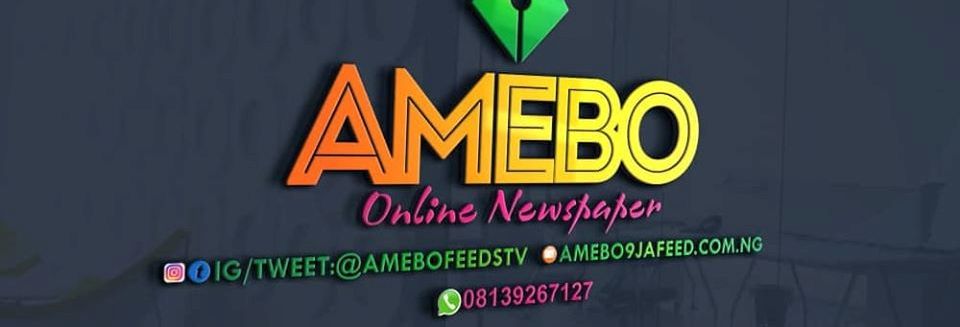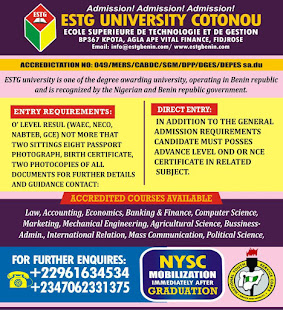...Say Revamped economy will unlock potentials.
Urgent solutions than can significantly enhance Nigeria's drive towards economic boom have been proffered by various experts.
These include getting the economy growing at a minimum of 11.5% annually and optimising national revenue through widening tax net and plugging existing leakages, especially tax evasion.
The recommendations came forth at the 3rd Edition of the 2nd National Leadership Dialogue Series (NLDS-002.3), hosted by Nigerian Prize for Leadership (NPL) and Partners, held via zoom on Thursday, July 29, 2021, with the theme, Reworking the Economy: From Process to Funding; Budgeting for Whom?
The forum hosted as a webinar which was well attended by partners and participants from within and outside Nigeria, had Senator Ibrahim Ida, CON, (Sardaunan Katsina), Chairman, NPL Finance & Funds Mobilisation Committee as Lead Speaker.
Also at the top-notch event were Ben Akabueze, FCA, Director General, Budget Office of the Federation; Barr. Eze Onyekpere, Lead Director, Centre for Social Justice, and Ambassador John Aji, ESQ P.R.O. NPL Ambassadors, 001 representing July NLDS CLUSTER, who served as Panellists; as well as Mr. Adakole Ijogi (who presented the thematic facts and figures).
The edition was formally opened by the Chairman of NPL Governing Board, Professor Anya O. Anya, OFR, NNOM, FAS and moderated by Dr Ike Neliaku, fnipr, the Executive Secretary.
Following robust discussions at the webinar, key conclusions and resolutions were adopted as part of measures and roadmap in reworking the
Nigerian economy. These include the following:
1. The National Budget is a financial statement that gives an estimate of planned Revenues and Expenditure of a nation for the one particular year.
2. Reworking the economy requires a decision and deliberate actions at doubling the economic growth of the nation every year. If the population growth is at 4% and GDP growth at 1.7%, there will be a gap and poverty will fill that gap. Therefore, the economists must get the economy growing at a minimum of 11.5% annually.
3. The national budget is a:
• Legal Instrument
• Financial Instrument
• Political Instrument
• Social Instrument and
• Economic Instrument.
4. The budget is a moral instrument that reveals the priorities and values of a government or organisation. Budgeting is therefore, a moral process.
5. When we get the economy right, we will have a more harmonious relationship across the various aspects of government and the citizens.
6. The Ministry of Finance coordinates the budgets from other ministries and parastatals and then presents it as a bill to the National Assembly by the President at a joint session of the upper and lower houses. It further goes through the first, second and third readings and discussed and amended
as a budget.
7. Some misconceptions in Budgeting Process:
a. Not everything presented by the Executive is accepted by the Legislative house.
b. There is often a pushback and realignment.
c. While projects captured in a National Budget are agreed upon by the Executive and Legislature, the implementation is the function of the Executive.
d. Borrowing is not bad so long as the intended funds are used appropriately and amortization plans duly executed.
8. The World Bank presupposes that a country’s tax revenue should be above 15% of GDP to drive economic growth and poverty reduction.
9. Proposals for the Federal Government budget are expected to execute close to 20,000 projects across the federation
annually.
10. The Budget often referred to as the National Budget is actually the Federal Government's Budget. The other tiers
of government have their various allocations and budgets.
11. 48.5% of Nigeria's revenue is the allocation for the Federal Government. Revenue to GDP ratio is 8.4% and
though the target is 15%, this falls short of the African Average of 20%.
12. For effective national planning and tracking, there should be a synergy in the budgeting process of the three
tiers of government.
13. Efforts should be made to ensure that the budget funding is effectively tracked by the end of the second
quarter, based on appropriation.
14. There is need for a judicial interpretation of the roles by the Executive and Legislature in the budgeting process.
15. If Nigerian leaders can tackle social and economic crises well, there will be no country better than Nigeria with
all the resources we possess.
16. To ensure that the budget funds the development of infrastructure, Nigeria’s capital budget should constitute at
least 60% of its annual budget.
17. Although taxation is the sustainable way of funding the public budget, tax revenue is currently low in Nigeria due to
massive tax evasion and the economic realities.
18. Nigeria’s Revenue should be optimized through the following:
a. Widening the tax net;
b. Plugging existing revenue leakages, including tax evasion;
c. Improving tax filing and payment compliance;
d. Digitalizing tax collection and administration for greater transparency, mitigation of compliance risks
and encouraging voluntary compliance.
19. The government’s wrong policy choices are critical sources of its inability to properly fund the budget.
Therefore, we should get our policies right in order to have the right outcome, one focus area is the National budget.
20. To budget for economic growth, we must reach out for the inclusion of all citizens for proper implementation and to ensure that we are all beneficiaries of the budget. The average Nigerian is concerned with implementation and not just figures.
21. We should focus on how to internally create wealth because we have the capacity to do so and not just seek to
borrow in order to fund the budget.
22. All capital budgets should be specified, terms like unspecified budgeting should cease to exist in order to ensure transparency.
23. There is an inextricable relationship between political and economic governance and the neglect of any possesses a great challenge in budgeting and implementation.
24. The need to take care of Nigeria’s micro economies is integral for Nigeria to create wealth adequately.
25. The budget is a National Budget because the policies (monetary and fiscal) such as duty and taxes cover the
whole nation.
26. A budget is supposed to be a subset of the national plan. It is a means of translating a national plan to the
extent of a particular year. Sometimes, the two are mutually exclusive.
27. We do not have a concrete national plan that is drawn out on the basis of the reality of the situation and that could
be translated on a yearly basis with the national budget.
28. In reworking the Nigerian economy, it is pertinent to take the following into consideration:
a. Appreciate the volatile nature of the international economy;
b. Be mindful of the global economic and physical insecurity and as well;
c. Factor in the health challenges that have been brought about by COVID –19.
All these have a tremendous effect on our budget in terms of the growth of our resource profile and the demands which were not budgeted for but had to be
catered for.
29. When the abundance of Nigeria’s economy is properly harnessed, we will be able to build a country that is:
a. Politically harmonious;
b. Economically just and equitable;
c. Socially tolerant; and
d. Will cater for the needs of every Nigerian.
In his closing remarks, Dr Ike Neliaku, the Executive Secretary posited that: "All that is required for growth and development in Nigeria is commitment and good orientation. Nigeria is currently going through a period of birth pangs, and the Nigerian Prize for Leadership believes that these painful pangs will produce New Nigerians that will give birth to the New Nigeria."






























No comments:
Post a Comment